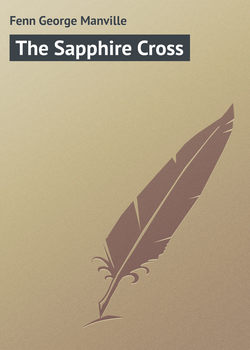Читать книгу The Sapphire Cross - Fenn George Manville - Страница 8
What Followed
ОглавлениеIt was an accident – so people said at Merland, and from being a wonder for a time, it was soon forgotten; and when, pale and weak from many months of illness, Ada Lee was seen out, with the tall bronzed soldier pushing her invalid chair, or reading to her from some book, the gossips of the village used to prophesy. And yet no word of love had passed between the invalid and her companion. Ada’s prolonged stay at the Rectory had resulted in Mrs Elstree wishing her to make it her home, on the grounds of her own loneliness, now that Sir Murray Gernon had, on account of his wife’s health, decided to remain in Italy, where he had taken a residence on the shores of Como. While Ada, continuing weak and ill, accepted Philip’s attentions with a smile of pleasure, though there was sorrow at her heart, which bled daily for the sufferings of her companion.
For time seemed to bring no healing to the wounds of Philip Norton, who, apparently disgusted with life, had sold out from the army, to settle down at his own place, Merland Hall, seeing no one, visiting nowhere save at the Rectory.
But the result was what might have been expected. Philip Norton awoke one day to the fact that there was happiness for him yet in this world, and he told himself it would be his duty to devote his life to the suffering invalid – to the blighted woman who paid penalty for his sin. And one evening, when the sun was glowing ruddily in the west, Philip Norton rested his brown hand upon the thin transparent fingers, and then, in the stillness of the evening, he asked her, in low, earnest tones, if she would take him as her protector.
“Ada,” he said, calmly, “I cannot love. You know all; but I owe you my life. Will you take that life now, with such devotion as I can attach to it, such tenderness as time will enable me to weave with it? I know I am but a broken, disappointed man; but you know my weaknesses and sufferings; you can help me to get through my journey, and, perhaps, in time you may learn to love me.”
Ere he had finished speaking another trembling, fluttering hand was raised, to be placed upon his strong arm, and then, leaning forward, Ada’s poor thin pale lips were pressed upon his hand, as one might salute a king, and then softly whispering to herself the words, “At last! At last! Thank God!” the invalid sank back in her chair, fainting from the wild tumult of joyful feelings that, in her then weak state, seemed almost more than she could bear.
For Ada Lee was dying; not, perhaps, in the ordinary sense of the word, for she might have lived on for years; but, none the less, she was fading away. One disappointment she had fought down; but the news of Norton’s death had preyed heavily upon her. Then had come his return, the shock, the adventures of the wedding-day, and, lastly, the wound. Her by no means strong constitution had given way beneath this, when, in addition, there had ever been the pang of hope deferred, and the sick heart finding no ease.
It was a strangely unimpassioned wooing, that of Philip Norton; but Ada was content; and at the end of five years, bright, happy of face, and only slightly more matronly, she came one day into her husband’s study, to find him stern and thoughtful – looks which passed away as if by magic, as the sturdy little fellow she led by the hand ran to him and climbed upon his knee.
“Is there anything the matter?” exclaimed Ada anxiously, as she leaned upon her husband’s shoulder.
“Matter! No, love!” said Norton, heartily – another man now, his face lighting up with pleasure as his child snatched first at pens, then at paper, everything within reach – “unless it is with this young rebel; but what made you ask?”
“Philip,” she said, softly, “you keep nothing from me, dear: do not begin now.”
“Well, there,” he said, “I won’t;” and he drew her nearer towards him. “Heaven forbid that I should from the woman to whom I owe life and happiness such as no other man could enjoy. But you see,” he said, slightly hesitating, “I have been over to the Rectory this morning.”
“Yes,” said Ada, anxiously.
“And they have had a letter from Italy.”
“Well, Philip?” she said, laying her head against his cheek, as one arm drew her nearer and nearer, while the other toyed with the boy’s curls.
“Well, darling, it is nothing; but I could not help it: the news seemed to cause me a vague feeling of uneasiness – nothing but a passing cloud – for thoughts will go backwards sometimes. Not complimentary, that,” he said, laughing; “but I meant no more, love, than a general reference to old troubles.”
“I know – I know,” she said, with unruffled countenance; “but what was the news?”
“Well, dear, it was that workmen are to be sent up to the Castle directly; and there’s to be painting, and paper-hanging, and re-furnishing, and Heaven knows what beside; and I was thinking that Merland has done for years past now uncommonly well with the Castle in its present state, and that, if I had my will, it should remain as it is.”
“And all this means, dear?” said Mrs Norton, quietly.
“Yes, of course,” laughed Norton. “Now, did you ever see anything like the dog? Both his fingers in the ink! Yes, it means, of course, that after five years of absence the Gernons are coming home.”
